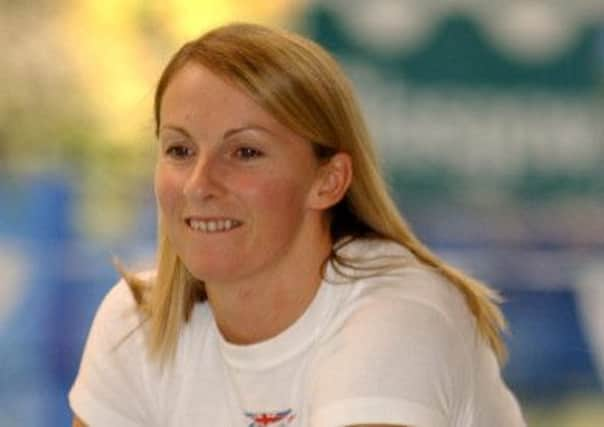Glasgow 2014: ‘Super Ali’ Sheppard was golden girl


By the time she entered the pool for the 50 metres freestyle final in Manchester in 2002, it had been 28 years since a Scot had won Commonwealth gold, and 48 years since a Scottish woman had achieved the feat. Sheppard knew that she would be keeping illustrious company if she joined David Wilkie and Elenor Gordon in this exclusive pantheon, unaware that a group of water babies were about to arrive on the scene and treat history with disdain.
Between Gregor Tait, Caitlin McClatchey, David Carry, Hannah Miley and Robbie Renwick, eight individual gold medals would come Team Scotland’s way in Melbourne and Delhi, not to mention many more silvers and bronzes. It would take a series of cataclysmic occurrences to stop the home team adding to that tally in Glasgow next summer.
Advertisement
Hide AdAdvertisement
Hide AdNone of this, however, detracts from the fact that Alison Sheppard’s Manchester prize, which she regards with more affection than any of her 15 other major medals, was extremely hard-won.
Four years earlier, in Kuala Lumpur, the Canada-based Glaswegian, a niece of Formula 1 great Jim Clark, had not been expected to win but she was only denied gold by England’s Sue Rolph by a tenth of a second. Peaking late, she was at the height of her powers by the time 2002 came around and she was in the unenviable position of being expected to win.
Had the qualifying rounds not gone quite as well as they did, Sheppard might have felt more pressure going into that final. But she had broken the Commonwealth record in her semi-final, and while over-excitement possibly contributed to her swimming slightly more slowly (24.76secs as opposed to 24.68) on the closing Saturday night of an excellent Games, it was all about being first to touch that wall, getting her hands on a Saltire and hopping onto the top of the podium.
Sheppard had already competed at four Olympic Games, and in Sydney in 2000 she was the only British woman to make a final (again, look how far we have come). Married to her coach Gary Vandermeulen, she showed remarkable longevity to train through a record fifth Olympic cycle, and even after failing to reach the 50m final in Athens, she carried on into 2005 before finally hanging up her goggles.
Great acclaim greeted the retirement of a trailblazing athlete who spent 17 years proving that it wasn’t only Australians, Americans, South Africans and continental European swimmers who had sprinting physiology.
Several of Sheppard’s old friends from Glasgow cheered her to gold in Manchester, wearing “Super Ali” T-shirts. “You don’t often get the chance to represent Scotland,” she reflected afterwards. “To do so is fantastic, and to win gold is even better.”